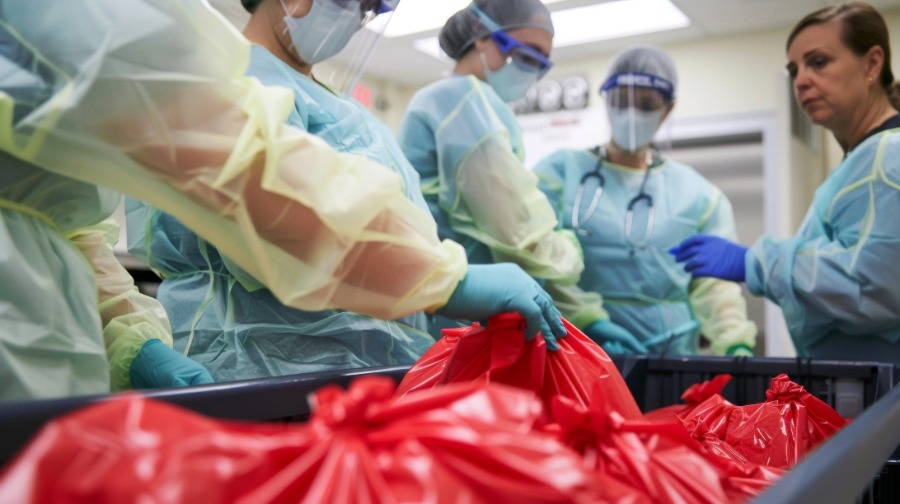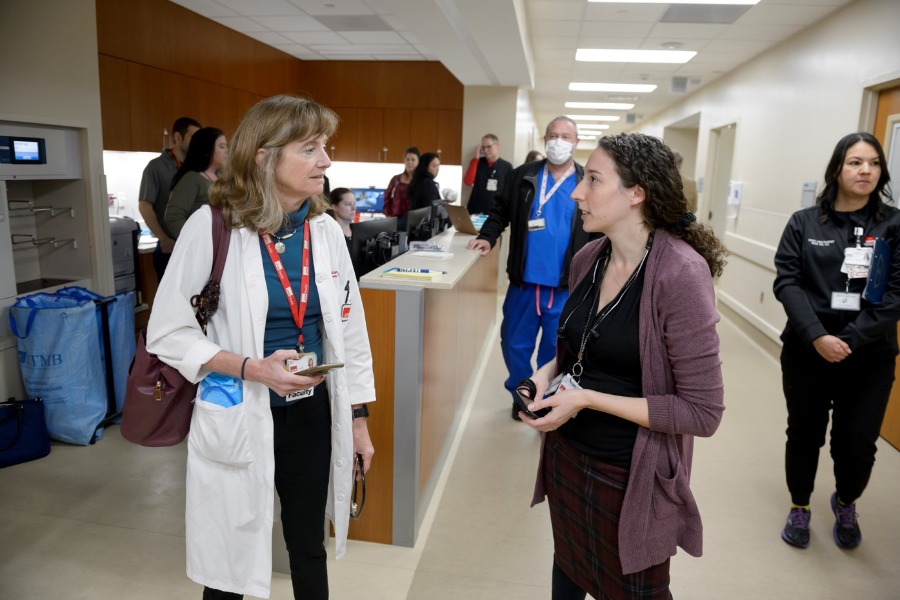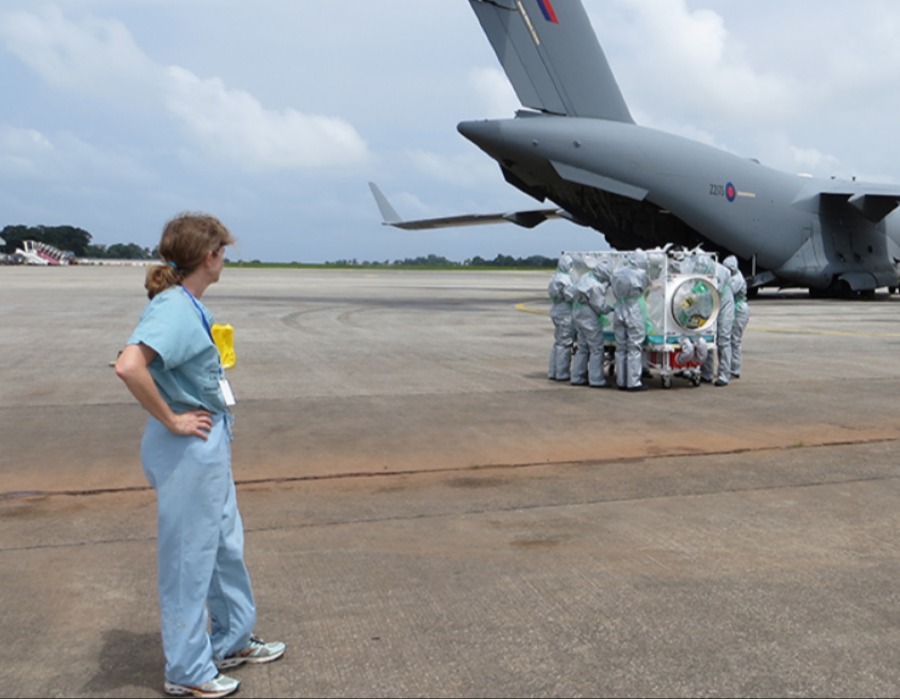Established in 2021, the Special Pathogens Excellence in Clinical Treatment, Readiness & Education Program (SPECTRE) supports clinical excellence in biocontainment care and serves as a resource for practical, real-world preparedness, response, and clinical research at UTMB.
As one of 13 federally funded Regional Emerging and Special Pathogens Treatment Centers (RESPTCs), SPECTRE plays a vital role in ensuring state and regional readiness to manage high-consequence pathogens like Ebola virus, Nipah virus, and Monkeypox virus. Our team works to strengthen local capacity and support national goals through efficient coordination with partners such as the National Emerging Special Pathogens Training and Education Center (NETEC) and the National Special Pathogen System of Care (NSPS).
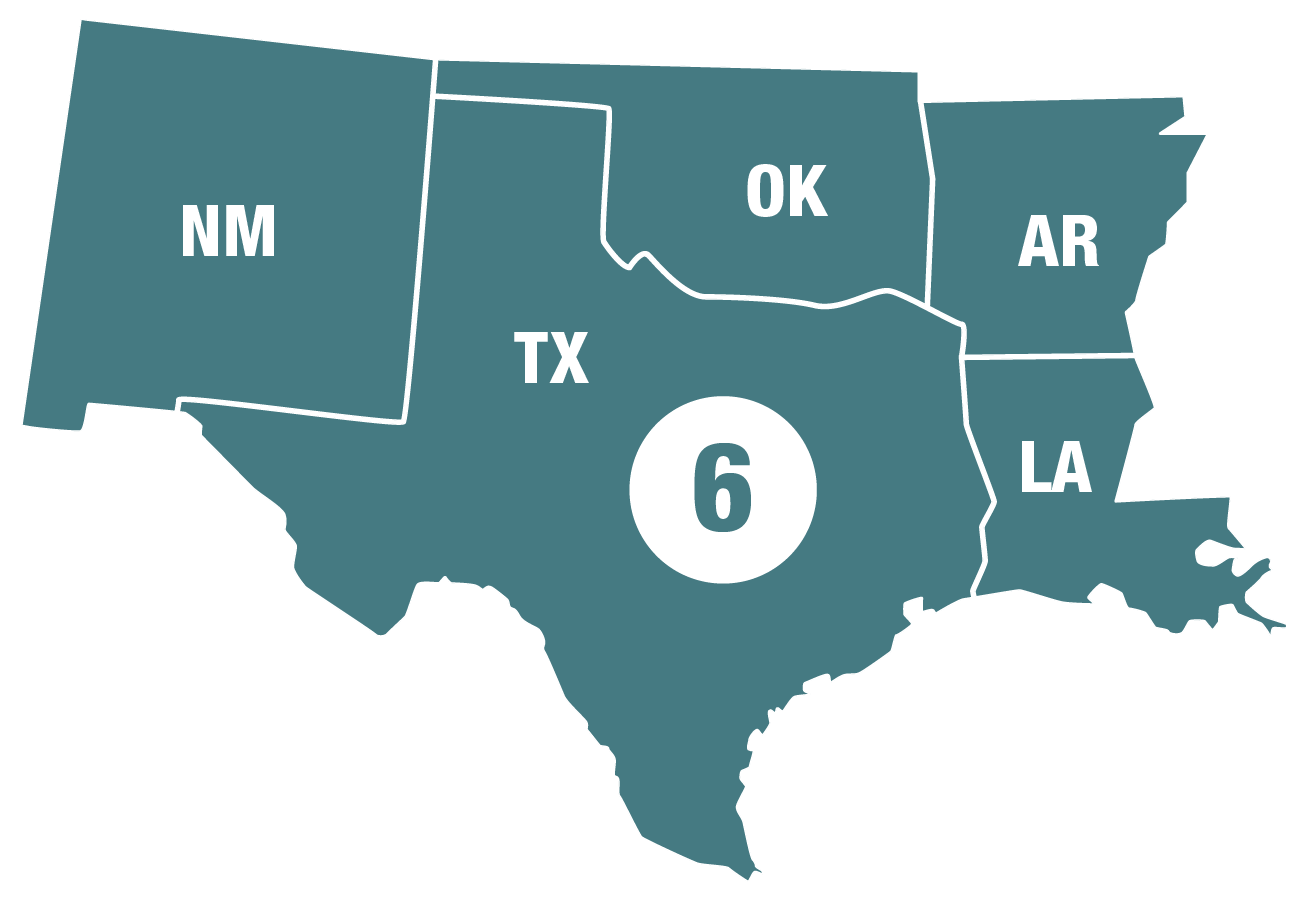
Biocontainment Care Unit (BCU) at UTMB
Training and Education
Research and Innovation
Regional Coordination
Funding Sources
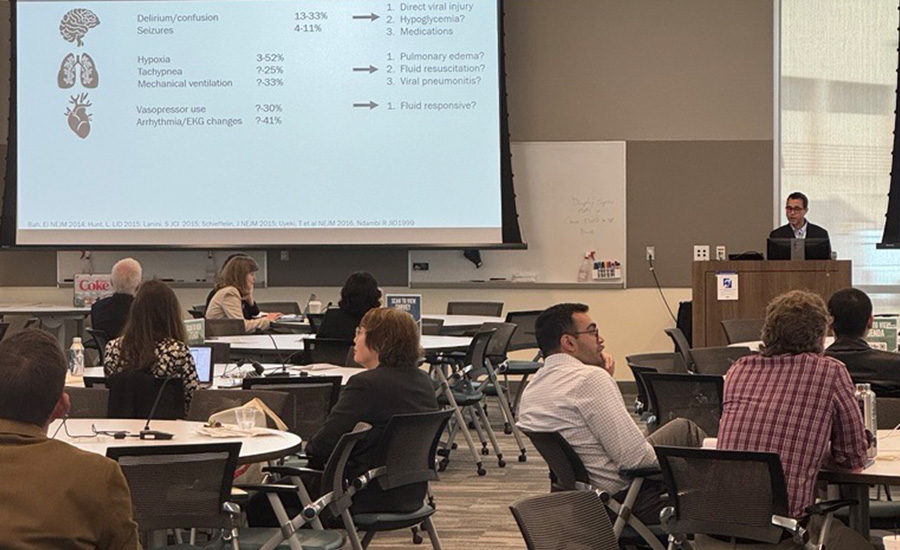
.jpg?sfvrsn=10794355_2)

